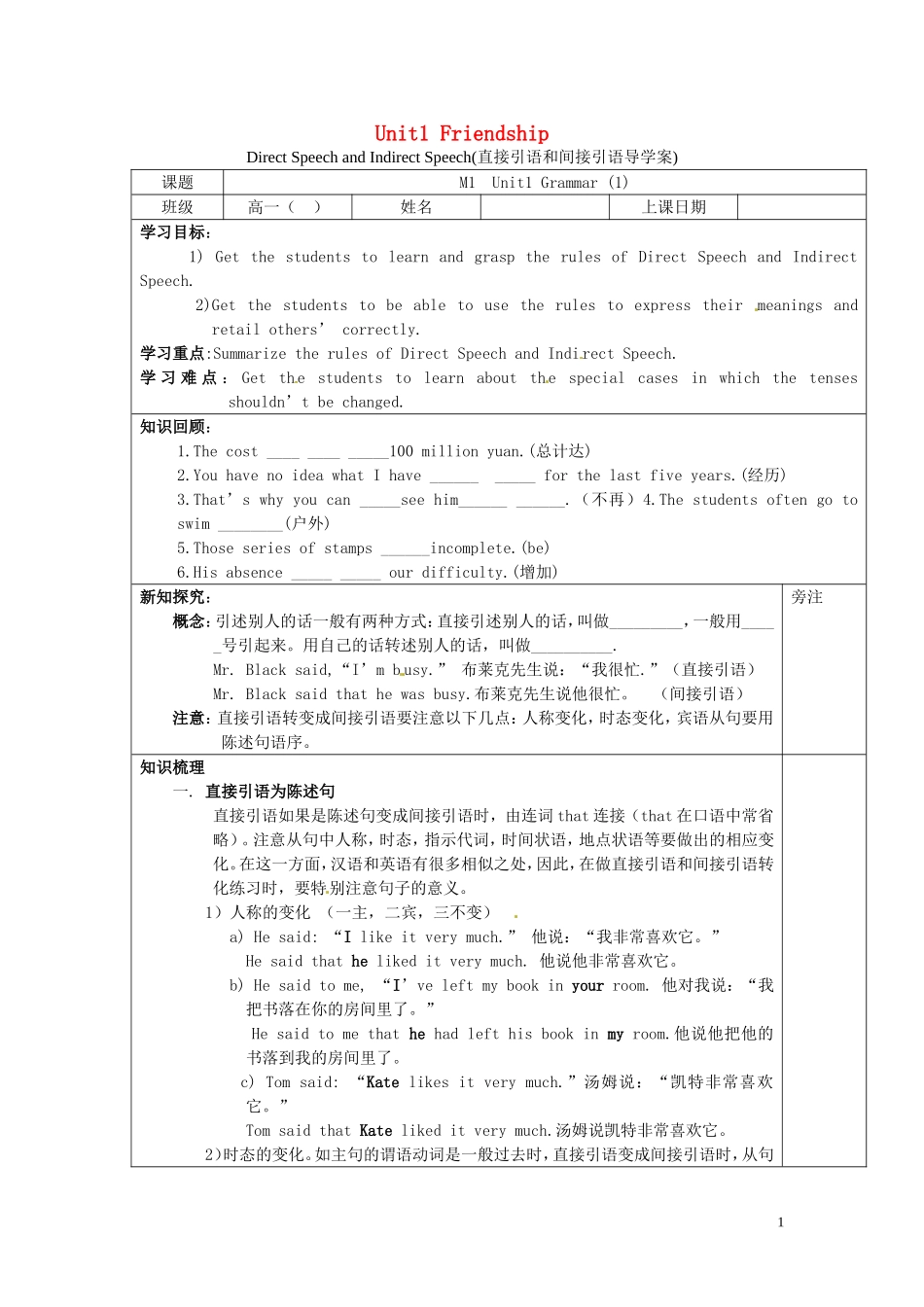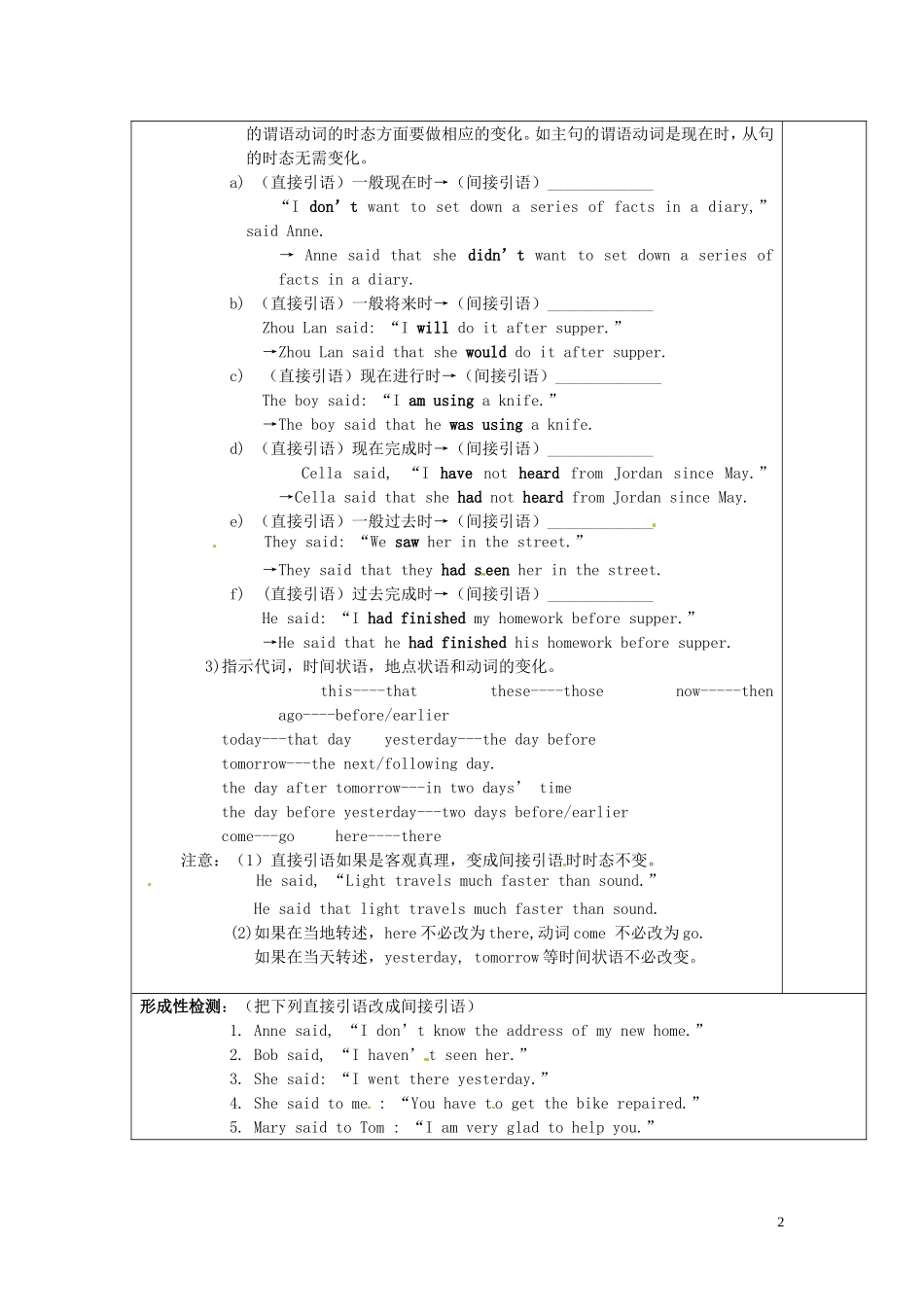Unit1 FriendshipDirect Speech and Indirect Speech(直接引语和间接引语导学案)课题M1 Unit1 Grammar (1)班级高一( )姓名上课日期学习目标:1) Get the students to learn and grasp the rules of Direct Speech and Indirect Speech.2)Get the students to be able to use the rules to express their meanings and retail others’ correctly.学习重点:Summarize the rules of Direct Speech and Indirect Speech.学 习 难 点 : Get the students to learn about the special cases in which the tenses shouldn’t be changed.知识回顾:1.The cost ____ ____ _____100 million yuan.(总计达)2.You have no idea what I have ______ _____ for the last five years.(经历)3.That’s why you can _____see him______ ______.(不再)4.The students often go to swim ________(户外)5.Those series of stamps ______incomplete.(be)6.His absence _____ _____ our difficulty.(增加)新知探究: 概念:引述别人的话一般有两种方式:直接引述别人的话,叫做_________,一般用_____号引起来。用自己的话转述别人的话,叫做__________. Mr. Black said,“I’m b usy.” 布莱克先生说:“我很忙.”(直接引语) Mr. Black said that he was busy.布莱克先生说他很忙。 (间接引语) 注意:直接引语转变成间接引语要注意以下几点:人称变化,时态变化,宾语从句要用陈述句语序。旁注知识梳理 一. 直接引语为陈述句直接引语如果是陈述句变成间接引语时,由连词 that 连接(that 在口语中常省略)。注意从句中人称,时态,指示代词,时间状语,地点状语等要做出的相应变化。在这一方面,汉语和英语有很多相似之处,因此,在做直接引语和间接引语转化练习时,要特别注意句子的意义。 1)人称的变化 (一主,二宾,三不变) a) He said: “I like it very much.” 他说:“我非常喜欢它。” He said that he liked it very much. 他说他非常喜欢它。 b) He said to me, “I’ve left my book in your room. 他对我说:“我把书落在你的房间里了。” He said to me that he had left his book in my room.他说他把他的书落到我的房间里了。 c) Tom said: “Kat...


